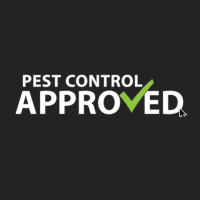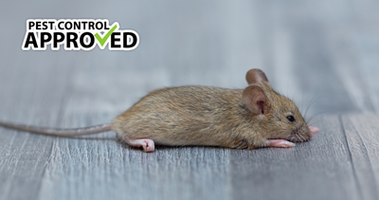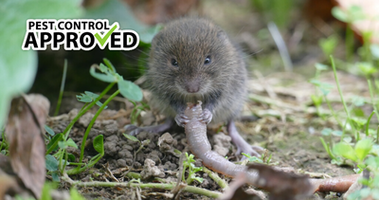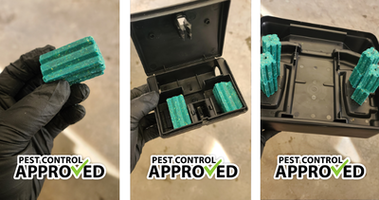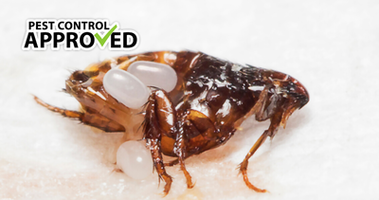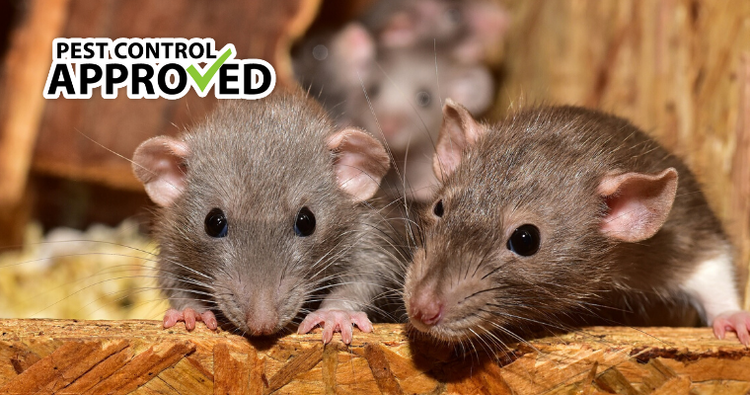
Rats, What Are They?
When we talk about rodents, we don’t mean cute little cartoon mice like Jerry or Cinderella’s helpers, but the large real rats that damage property, spread disease, steal food, and contaminate homes. Some people enjoy pet rats and mice but, from a homeowner’s point of view, rats are menaces that bring parasites into the house like fleas, lice, and ticks.
A single rat in your home or place of business may not seem like a big deal; however, this small problem increases at an exponential rate. A single rat gives birth to a litter of up to ten kittens and one female rat has 5 to 6 litters per year. A single rat can multiply into a large family in no time and can easily become a rat infestation.
Rat Infestation Damage
Just the thought of having dozens of rats scurrying around your home can send a shiver down your spine. Running into one can be a truly frightening experience, but the fear they cause is the least of your problems. There is a reason why rats are known as the most destructive pests. Below we have listed some of the problems caused by a rat infestation:
Health Concerns
According to the health authorities, a rat infestation can cause 26 different infections. The most obvious form of transmission is directly through a rodent bite or scratch. But they can also contaminate food if they come into contact with counter tops, food preparation utensils, or cutlery. Of course, rats also directly contaminate food when they try to steal it.
Rats often have fleas. Fleas are disease carriers who transmit infections when they bite humans or animals. They are responsible for many serious outbreaks including the Black Plague. Rat droppings, urine, and saliva are all carriers of bacteria and harmful germs. Their bodily discharges become more dangerous as they start decomposing. Then, the germs become airborne.
The most common infections passed on by these pests are:
- Lymphocytic choriomeningitis virus (LCMV)
- Bubonic plague
- Typhus
- Hanta virus
- Salmonellosis
Structural Damage
A rat’s teeth continue to grow throughout its lifetime. They must constantly bite and gnaw to trim their teeth. Most rats nest in the foundation of buildings, on the roof, or in attics. This can weaken a building’s structure as they chew on support beams. They also leave large holes in the walls and floorboards and, upon closer inspection.
Rats will also chew on the structural wiring inside walls. Their tendency to chew wires not only causes damage to electronics and the electrical electronic system of a building but is also very real fire hazard. The National Fire Protection Association in the United States says that about 25% of all house fires are caused by rodent damage. Unfortunately, Canada does not keep statistics on rodent caused fires.
How to Keep Rats Out of Your House
Now that you know all about rodent damage, you will be more motivated to keep them out. The best way to prevent an infestation is by keeping your house clean. Rats thrive in a dirty environment and will be drawn to dirty areas in your home.
For further protection, block all entries into the house. This means keeping your door, walls, and floorboards hole free and in good repair. Mice and rats are flexible. They can enter openings as small as 20 millimetres (3/4 inch). Mice can enter holes as small as 9 millimetres (3/8 inch). Ensure that all openings greater than a quarter of an inch are immediately repaired or blocked.
Rat’s natural enemies can help keep a rat infestation at bay. One natural enemy is the domestic cat. While Tom may never be able to catch Jerry, domestic cats are great hunters. Not only do cats hunt rats but their scent will deter rats from entering a home. You should consider getting a pet cat to keep your house safe against rat infestations. Some dogs, like terriers, are also excellent rat catchers. However, they may not deter them from entering your home.
How to Identify a Rat Infestation
Rats are very illusive animals and tend to shy away from people. Unlike most animals, rats are intelligent. They are wary of new objects and situations and stick to places they know, like the inside of walls or roofs and their underground homes. Here are some common signs of a rat infestation:
1) Presence of Dead or Living Rats
Given enough space, rats prefer to hide but, due to their increasing population, rats cannot hide as well as they used to. Some of them are forced out into the open. If you discover a dead rat or see a live one scurrying around in your home, then it is likely that a full-scale infestation has already occurred.
2) Rat Droppings
A feeding rat family may be seen but they will leave little hints behind in the shape of droppings. Rat droppings are brown pellets that are about one centimetre (one inch) long. They are blunt at one end and rounded at the other. The droppings are usually found near nests or along walls.
3) Dirt and Grease Marks
Not known for cleanliness, rats tend to be covered in grease and dirt. While it is gross to think of something so dirty rampaging around your house, it may be a blessing in disguise. Rats tend to repeatedly brush against the walls and floorboards, leaving dirt and grease patterns for easy identification. But be careful. These smears can also be caused by pets or children. Even if the marks were left by rodents, the marks can last for a long time. They may indicate a past infestation.
4) Rat Noises
Listen for suspicious sounds coming from above your head or below your feet. As rats are agile climbers, they can easily make their way up the roof and into the attic. They also like to build their nests in damp, dark places like underneath the floor. Scurrying and scratching noises during the night can alert you to their presence.
5) Rat Tracks
If you see no obvious signs of rats, you should examine your backyard for rat tracks. Rats are wary creatures which means they stick to a trail; once they have selected a safe foraging path, they will not deviate from it. If rats are around, their tracks will be easily visible in low vegetation. Their tracks are smooth dirt paths that are free of vegetation.
6) Bite Marks
Since rats have a destructive habit of chewing anything and everything, damaged objects and holes around the house are clear signs that you are facing a pest problem. Rat teeth leave large and rough marks, so rat damage is easy to identify. They may bite fabric, plastic, or wood. Since they are always foraging for food, look for ripped food packages.
7) Nests Near Food Sources
Like all other rodents, rats multiply quickly. To keep these babies safe and fed, rats build nets from shredded material such as fabric or newspapers, often near a food source. A good place to check for existing rat families will be under or near the kitchen like under the refrigerator or in the pantry.
How to Get Rats Out of Your House
If you identify a rat problem in your building, it is imperative that you take immediate action. There are a number of steps you can take to get rid of these pests by yourself. Some of these are:
Inspection
Contrary to popular belief, an inspection doesn’t end when you have identified the problem. In fact, it is just the beginning. You must now find out where the rats are and what paths they follow.
Exclusion
While inspecting and collecting data on your infestation, it is important to barricade your house against further entry. Look for small holes about 9 millimetres (3/8 inch). Sealing these holes will prevent mice and rats from entering your home. You can use copper mesh or a foaming hardware glue to seal these openings if proper repairs are not immediately possible.
Sanitation
Rats thrive in a dirty environment, so a clean house will automatically be a less attractive habitat. Trash should be disposed of as soon as possible because rats frequently live off food scraps. All garbage cans in the house should be fitted with tight lids. If you have pets, it is important to clean up after them because rats can easily live off the food dropped or discarded by your pet.
Baiting and Trapping
Rats are a cautious species and they are wary of new objects, especially in a familiar environment that. Setting traps immediately after identifying an infestation is likely to lead to failure and will even alert the rodents to future traps. This is where baiting comes in. You place unset rat traps around the house. By leaving unset traps in places where rats frequent, you will give them time to become used to the object.
After a few nights (at least 7 nights), you can begin to set the traps. Experts suggest using several dozen traps at once because rats may grow “trap shy” after the first night. It is essential to make the most of this opportunity to eliminate as large a percentage of the population as is possible. The key is to trap the rodents at a higher rate than their re-population or reproduction rate. You may also want to remove other food sources to encourage them to eat the bait.
Using trapping has its advantages because it means you can dispose of the dead rats before they start decaying. Compared to other methods, this is also the most humane way of killing the pests. However, if you have pets or children, it is important to keep them away from the traps because the spring is strong enough break bones.
Rodenticides and Poison
As is evident from the name, rodenticides are specialized pesticides made exclusively for rats and other rodents. These work by stopping the rodent’s heart. Rodenticides can be used instead of trapping and require a shorter baiting period because rats are prone to eating anything and everything without much caution. Rat poison comes in the forms of blocks or pellets and can be left near nests and around the building.
These are very potent and often there are no antidotes available, so it is important to leave them in places where children and pets can’t get to them. To prevent accidental poisoning, it is recommended to use tamper-resistant stations in locations that are not easily accessed by children or domestic animals.
Pest Control Services: Rat Exterminators
Do-it-yourself home remedies may seem like a good idea but, in the long term, you may end up spending more money on traps and rodenticides than it would have cost to hire a professional in the first place. Not to mention the frustration felt from unsuccessful attempts. A rat exterminator is a trained professional who can clean up the problem in a matter of hours, where it would have taken you weeks. Many companies around the world offer free inspections, especially for businesses.
When to call an Exterminator?
Sometimes people may be paranoid about infestations but that it is just fear speaking. On the other hand, some may be facing a serious rat issue but not know it. In both circumstances, a professional inspection is recommended. They are trained to fully understand and deal with all kinds and levels of infestations. Most DIY attempts prove ineffective against rats due to their cautious nature; they avoid new things in their environments.
Experts recommend calling an exterminators immediately to minimize long term damage and costs. After all, if the situation is dealt with early on, there will be less damage to your building’s structure, less chance of disease, and less money spent.
Questions to Ask Before Hiring an Exterminator
Since you’re paying, you need to make sure that you are getting the best quality of service. Don’t be shy when questioning your exterminator! After all, this is a matter of your household safety and wallet.
1) Credentials
No one wants to get scammed. The best way to make sure you’re hiring a legitimate company is to ask for credentials beforehand. True rat control specialists back up their expertise with certificates and a license of service. Never hesitate to check if the team of exterminators are trained by asking for their license and certification details. Check this information by using the federal system.
It is also important to ask about professional experience like the number of years the company has been active and how often has the exterminator has solved a similar problem. Making this inquiry can give you their experience level and will re-assure you that they can manage the situation.
2) References
Any good exterminator service can back up their claims. Ask for a list of previous customers so you can assess their experience and personal review. It’s crucial to know if the company was able to satisfy the former customers.
If it is not possible to ask for references, then use your friends, family, and neighbors as a source of information. People love to talk about good service and companies that they have used. A company that refuses to provide any references is likely a scam or a bad company.
3) Use of Chemicals
While the most common method used by exterminators is trapping, they also heavily rely on rodenticides. There are many different kinds of rat poison available in the market. Ask your exterminator for a list of what they will use along with their individual specifications. The specifications should include registration numbers, restrictions, clean-up methods, possible antidotes, and other details. These details will help you clean your home after the exterminators have left and prepare you for any accidents if pets or children come into contact with the chemicals.
Sometimes fumigation is used for rat removal but only as a last resort because it means exposing yourself and your loved ones to harmful gasses. You will have to vacate the building for a few days but even then, the fumigation gases will disperse into the environment and may result in long-term damage.
4) Guarantees
Most pest control services offer guarantees for quality assurance and customer satisfaction. These guarantees include a time-limited warranty so the company will be held accountable if the infestation resurfaces and will take care of the problem for no additional cost.
These guarantees can also include inspection visits after the extermination process is completed. This means that, for a certain period of time, you will have professional protection to ensure that the infestation is permanently removed. The longer the warranty period offered by the company, the longer your establishment will be protected.
5) Number of Visits
The extent of the infestation, the size of the property, and the damage already done to the structure will determine how many visits are required. The exterminator should discuss all of these details with you after the initial inspection. These details will be listed, and the number of visits established in the service agreement. There is no pest control method that fits every infestation or establishment, so this question will give you get an idea of the pest control process.
Rat Control and Pricing
Rat control and elimination costs usually range between $175 and $1000. The cost is based on several variables and factors like:
Property Size
The size of your house or business establishments will play a major role in determining the final extermination cost. The larger the property, the longer it takes to seal all possible entry points.
Severity of Infestation
The more rats there are, the more it will cost to have them removed. A more severe infestation will require far more time, energy, and rodenticides or traps.
Accessibility of Infestation
If the infestation is focused solely in an inaccessible area like the roof, inside of the walls, under the floor, or under the foundation, the cost of removal will increase.
Standard Rat Treatment Costs
There are a few standard packages that can be used to determine the approximate cost for extermination. These packages include:
- Light Infestation
Light Infestations are when the exterminator needs a maximum of two visits to completely rid the house of rats. This is the cheapest rodent removal package and is only applicable in the early stages of an infestation. It costs between $175 to $300.
- Serious Infestation
Falling in the $350 to $500 price bracket, this is the standard package for most infestations. Small properties with large infestations or larger properties with lighter infestations can be managed at this fee. In 3 or 4 visits, the exterminator will inspect the building, set up traps, remove dead rats, and seal all possible entry points.
- Complex Rat Control
When a property is exposed to widespread damage, the pest controller company has to use a complex treatment process. This includes maintenance of the building, using hundreds of traps and placing rodenticides over many days and weeks, sometimes even months. This type of pest control treatment costs $650 and up.
- Fumigation
If the situation cannot be contained by traditional methods, the exterminator might resort to fumigation. Fumigation can cost from a little over $1 to $4 dollars per square foot! This means a homeowner may have to pay anywhere from $2000 to $5000 depending on the size of the area. It's important to note these types of treatments are for the most extreme infestations, and is only available in certain Countries and/or States. Most infestations are solved with the application of commercial grade baits and the repair of potential entry points.
Before and After Rat Extermination
Sanitation is the key to prevent rats from coming back. But there are many other actions that you can take to make your house a rodent-free zone, such as:
1. Pruning Trees
Rats might climb trees that have extended branches to enter your property.
2. Screen Vents
All the air vents, drains, and other necessary openings should be protected with fitted screens to prevent rats from entering.
3. Notify Your Neighbors
Sometimes, rats can set up house outside of residential properties and can endanger the whole neighborhood. A combined effort will help secure your entire neighborhood against pests.
4. Staying Vigilant
It is important to keep an eye out for rodent activity so the situation can be dealt with immediately if they return.
Frequently Asked Questions
How can I make sure that all the rats are gone?
Place a handful of sunflower seeds in a place that was frequented by the rats. If the pile is untouched (no scattering) after a couple of days, then you can be sure they are all gone.
Should masks be worn while removing dead rats?
Breathing the air near dead rats or even their droppings is a health hazard. Make sure you wear a mask and rubber gloves during the sanitation process.
Can rat droppings be vacuumed up?
We do not recommend using a vacuum cleaner to clean rat droppings unless it is equipped with a HEPA filter. The HEPA filter helps remove even the smallest particles and provides an efficient and safe cleaning experience. Experts also recommend wetting the droppings to reduce the emission of harmful fumes and odors.
Will peppermint deter rats?
It is a common household myth that peppermint oil repels rats. Peppermint does nothing to deter rats and especially won’t repel any rodents already inhabiting the property.
Conclusion
Rats are known as the world’s most dangerous pests because they are carriers of harmful diseases, can cause structural and electrical damage to buildings, and can act as a gateway for other pests to gain entry to your house. There are several ways to prevent and keep your household secure against rodents but often, despite all our efforts, we find ourselves in the midst of a full-blown infestation.
You can use many types of traps, rat poisons, and devices that are available in store to combat an infestation but using them effectively is a challenge. These home remedies help but calling in the professionals is always a safe and wise decision. Rat control teams are trained for this purpose and have a vast wealth of knowledge to draw upon. Make sure to learn about the exterminator beforehand to avoid a scam and to ensure the most efficient and guaranteed service.
We recommend determining the size of your home or establishment and the severity of the infestation before hiring a rat exterminator, so that you are aware of how much the entire process will cost. Knowing the approximate cost can help you avoid a scam or rip-off.

